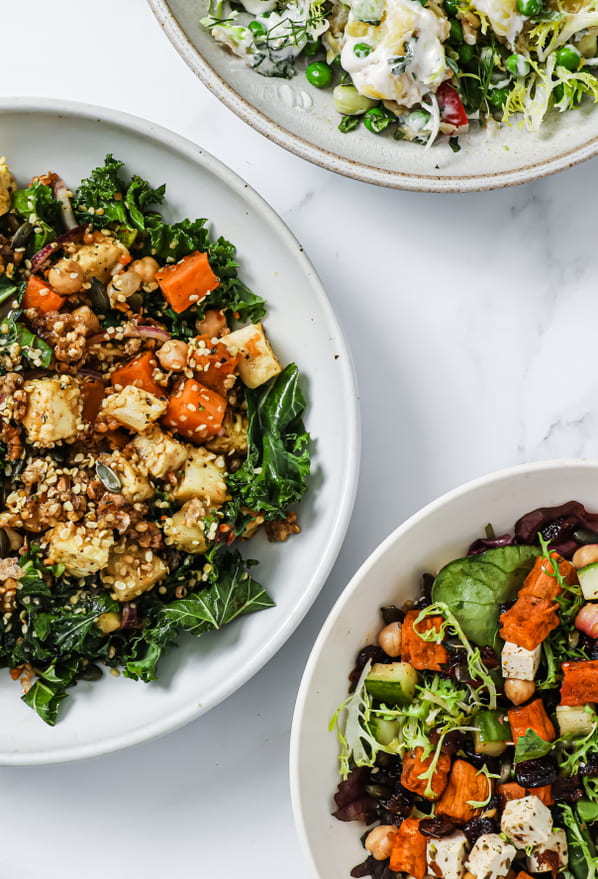Gut microbiome health
The gut microbiome is one of the most fascinating and rapidly developing areas of human health research.
Recent studies have uncovered the mind-blowing fact that the number of microorganisms in and on our bodies (mostly bacteria in our gut) outnumbers our own body’s cells by around 10 to 1. In fact, the gut microbiome is so important it’s often referred to as the ‘forgotten organ’.
Studies show that vegans and vegetarians tend to have a gut microbiota which is quite distinct from that of omnivores. They’re likely to have fewer pathogenic (‘bad’) bacteria and a greater abundance of protective species (1). This is mostly down to the increased fibre intake of a typical vegan diet. So, why are these improvements in gut health so important?
1. Our gut bugs help us digest food
Our gut microbiome helps us to break down the lipids, carbohydrates and proteins in our diet to make them more easily digestible, helping us to absorb nutrients that otherwise would be unavailable to us.
2. They produce beneficial compounds
Bacteria ferment certain fibres in the diet, and in the process, they produce short chain fatty acids (SCFAs) - some of which are the main source of energy for colonocytes (the cells lining the colon). By doing this, they can help keep these colon cells healthy and reduce risk of colon cancer (2).
3. Boost the immune system
Those SCFAs that our gut bugs produce when we feed them fibre also help to improve the junctions between the cells lining our gut, known as the intestinal barrier, thereby reducing the absorption of pathogens and toxins, while preserving the ability to absorb nutrients (3).
4. Improve performance
There is emerging evidence that healthier guts can lead to improved performance in a range of physical activities and recovery (4). Interestingly, physical activity also improves gut health, so by eating well and exercising, this can create a positive cycle of health and performance.
5. Protect long-term health
Those miracle SCFAs can improve bowel disorders such as ulcerative colitis and Crohn’s disease, but may also reduce risk of other inflammatory diseases, type-2 diabetes, obesity and heart disease (5).
As you can see, our gut bugs do more than just break down our food (although that’s incredibly important too). Our microbiome is a prime example of a mutually beneficial, symbiotic, relationship – we look after our bacteria by feeding them lots of fibre from plants and providing a warm, cosy environment in our gut, and in return they help us break down our food, produce other compounds crucial for our survival, boost our immune systems and improve performance.
References:



